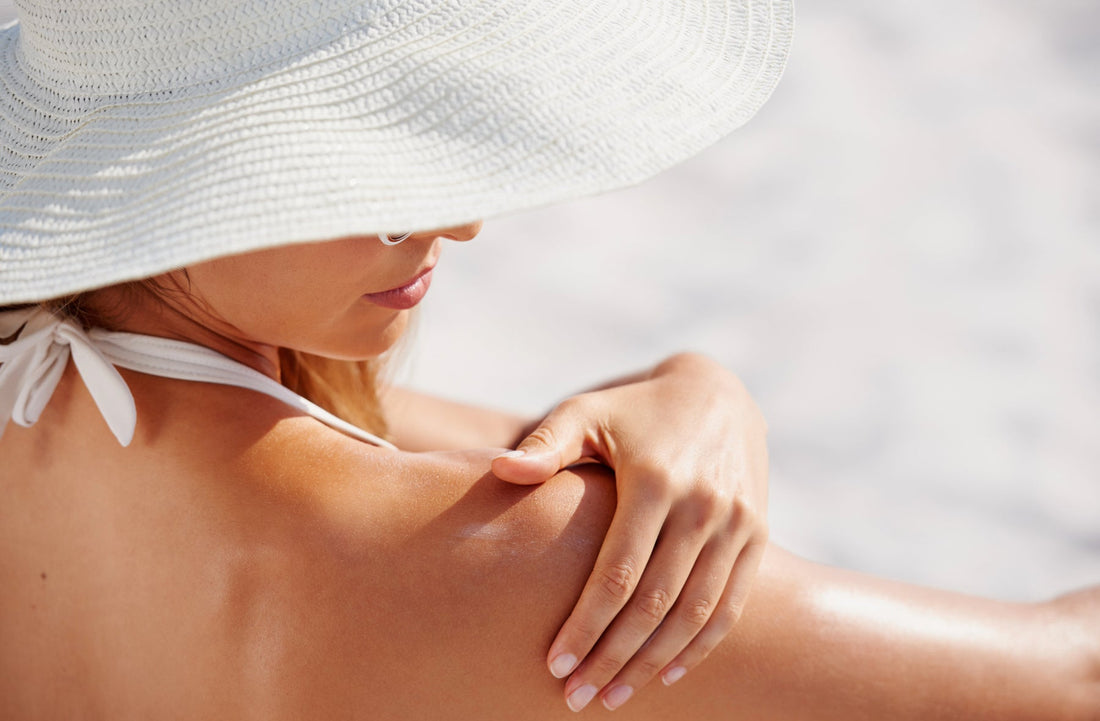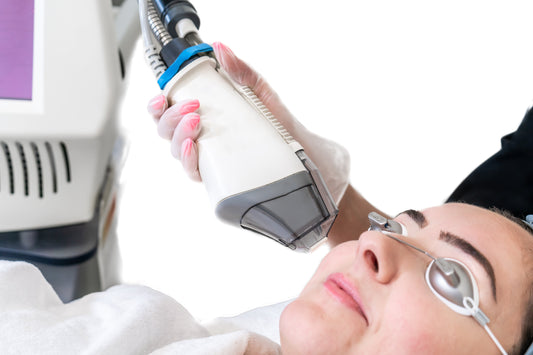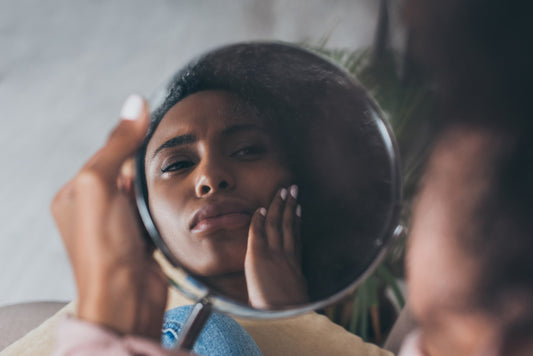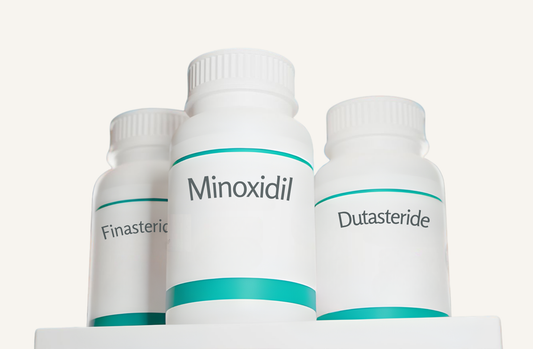Summer is in full swing. Long, sunny days mean we need to step up our sun-protection and skin damage control game in order to keep our skin healthy. Whether you’re attending your child’s late-afternoon baseball game, floating in the pool or lake with friends, or going on morning walks, your skin needs your serious attention.
Understanding Summer Skin Risks
We’ve heard a hundred times: we need to wear sunscreen, protective clothing, and stay indoors during peak sun hours. Practically, what do these recommendations actually mean? Is it really that important to follow all these recommendations? The reality is, according to the Mayo Clinic, that “over months and years, those [sun] hours add up, and the time in the sun may damage your skin.” You also need to know there’s no such thing as a “base tan” keeping you safe from skin cancer. Those with the greatest risk for skin cancer are those with fair or freckled skin, a family history of skin cancer, a personal history of skin cancer or sunburns, living in a place that’s usually sunny, and working an outdoor job. Even if none of these high-risk factors apply to you, you can still get skin cancer. Sunscreen is recommended year-round, not just in summer.
Choosing the Right Sunscreen
It’s overwhelming to stand in the store aisle and gaze upon the rows and rows of sunscreen options, such as chemical and mineral. There are sprays, sticks, lotions, and even lip products — usually in bright packaging aimed to lure us into purchasing.
First, look for the right SPF (sun protection factor). According to Dr. Anthony Nuara, a board-certified dermatologist who has helped hundreds of patients with skin conditions and hair loss, our “broad-spectrum sunscreen that protects against UVA and UVB rays” need to have an SPF of 30+. Faces need an SPF of 50+.
Second, ingredients matter. I prefer to steer clear of anything that might cause an allergic reaction or be considered even mildly carcinogenic. My personal preference is to reference The Environmental Working Group (EWG) website. Each year they publish a safe sunscreen guide for consumers.
Also consider convenience and preference. What are you most likely to use and reapply as directed? If a spray is easier for you, by all means, use a spray. If some sunscreens leave a white film on your skin, use a brand that doesn’t. This will take some trial and error.
Adapting Your Skincare Routine, Especially After-Sun Care
Skin health is first and foremost inside-out. It’s important to put into your body what it needs for healthy cell creation and growth. Spectrum is here to save the (summer) day! Spectrum is dermatologist-formulated supplement that renews skin and creates stressor-defense. We like to call it “internal skincare,” as it provides the essential antioxidants and vitamins to “help strengthen, shield, and revitalize” our skin. It’s so easy-peasy. Just take two capsules per day with a glass of water, slather on your favorite sunscreen prior to your outdoor fun, and enjoy!
You can also look into the benefits some of our topical products. Our Night Renewal Cream (helps with sun damage), Hyaluronic Acid Lotion (goodbye, dull and dry skin), Vitamin C Lotion (hello, brightening and moisturizing), Niacinamide Lotion 10% (DNA repairing), and Azelaic Acid Cream (bye-bye, bacteria) can all enhance your summer (and year-round) skin health.
Hydration is Key
Hydration is incredibly important for overall health, including skin health. Harvard reports that healthy men need about 13 cups of water per day, and healthy women need about 9 cups of water per day. However, more may be necessary for “those who are physically active or exposed to very warm climates.” Water isn’t a magical cure-all for skin ailments; however, “minimizing wrinkles and perking up your skin really comes down to moisturizing and an overall healthy lifestyle.” They define this “healthy lifestyle” as avoiding smoking, consuming a balanced diet with fruits and veggies, moisturizing, wearing sunscreen, and of course, drinking water. Topicals, such as our Hyaluronic Acid Lotion and Vitamin C Lotion, can also help.
Protective Clothing and Accessories
Skin health and protection is a multi-layered approach. In additional to applying the best sunscreen for you, taking your supplements, using topical lotions, and drinking water, be sure that you have an arsenal of protective clothing and accessories that match your chosen summer-fun activity. Long sleeved clothing, broad-brimmed hats, and sunglasses can all help protect your skin. Of course, you have to balance the temperature and activity level with sun exposure, choosing what’s safest for your activity.
Lifestyle Tips for Overall Skin Health
Protecting your skin requires you to take ongoing and purposeful steps. Make it part of your daily routine to consume plenty of water (use a glass to take your Spectrum!), apply sunscreen, keep skin-protective clothing within reach, and treat your skin well with topicals. Skin health is part-prevention, part-treatment, and part-maintenance.
Wishing you a fun-in-the-sun summer!




